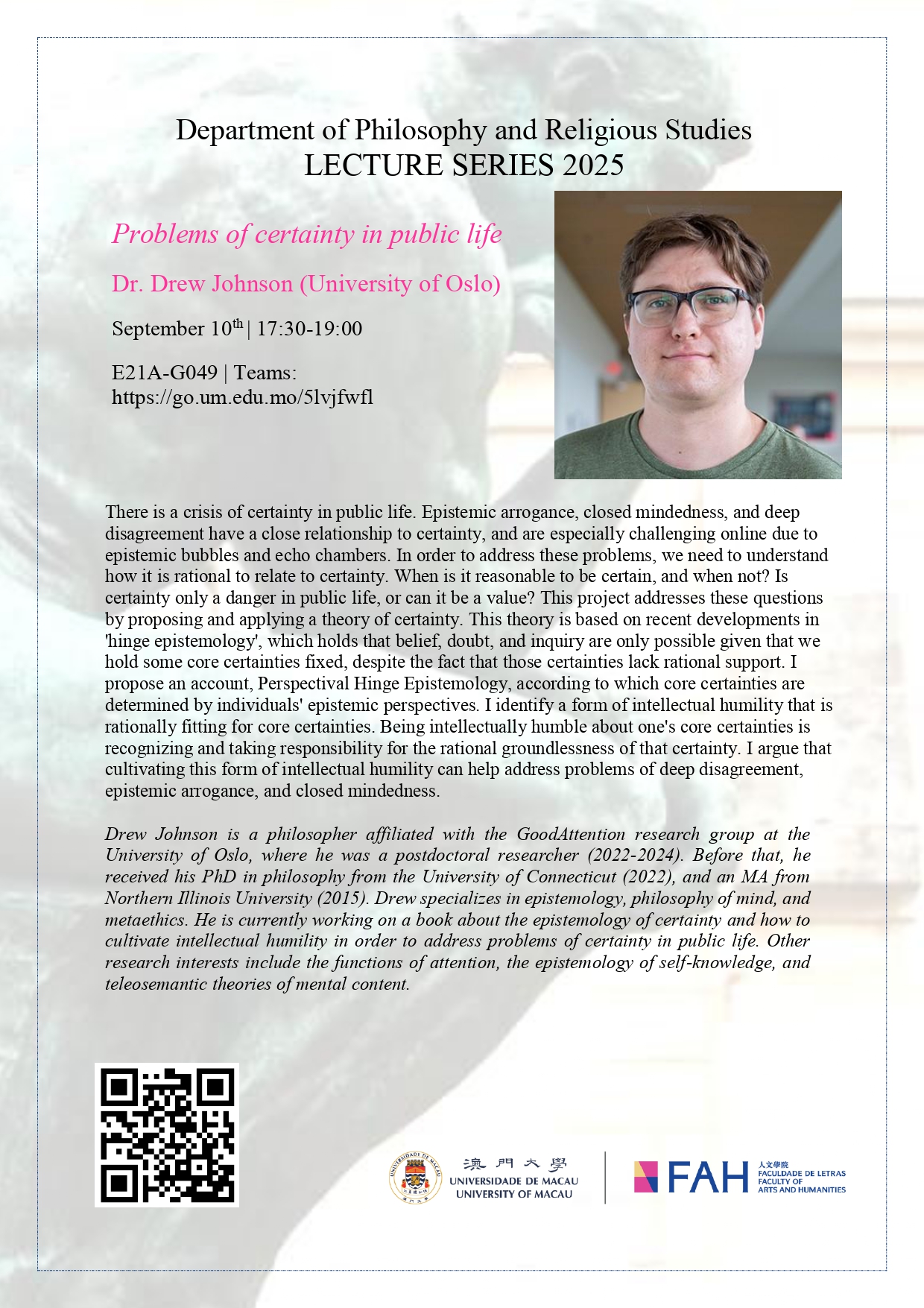

FAH/DPHIL Lecture Series – “Problems of certainty in public life” by Dr. Drew Johnson, University of Oslo, Norway
2025-09-10 @ 5:30 pm ~ 7:00 pm
Microsoft Teams: https://go.um.edu.mo/5lvjfwfl
Abstract
There is a crisis of certainty in public life. Epistemic arrogance, closed mindedness, and deep disagreement have a close relationship to certainty, and are especially challenging online due to epistemic bubbles and echo chambers. In order to address these problems, we need to understand how it is rational to relate to certainty. When is it reasonable to be certain, and when not? Is certainty only a danger in public life, or can it be a value? This project addresses these questions by proposing and applying a theory of certainty. This theory is based on recent developments in ‘hinge epistemology’, which holds that belief, doubt, and inquiry are only possible given that we hold some core certainties fixed, despite the fact that those certainties lack rational support. I propose an account, Perspectival Hinge Epistemology, according to which core certainties are determined by individuals’ epistemic perspectives. I identify a form of intellectual humility that is rationally fitting for core certainties. Being intellectually humble about one’s core certainties is recognizing and taking responsibility for the rational groundlessness of that certainty. I argue that cultivating this form of intellectual humility can help address problems of deep disagreement, epistemic arrogance, and closed mindedness.
Bio
Drew Johnson is a philosopher affiliated with the GoodAttention research group at the University of Oslo, where he was a postdoctoral researcher (2022-2024). Before that, he received his PhD in philosophy from the University of Connecticut (2022), and an MA from Northern Illinois University (2015). Drew specializes in epistemology, philosophy of mind, and metaethics. He is currently working on a book about the epistemology of certainty and how to cultivate intellectual humility in order to address problems of certainty in public life. Other research interests include the functions of attention, the epistemology of self-knowledge, and teleosemantic theories of mental content.

